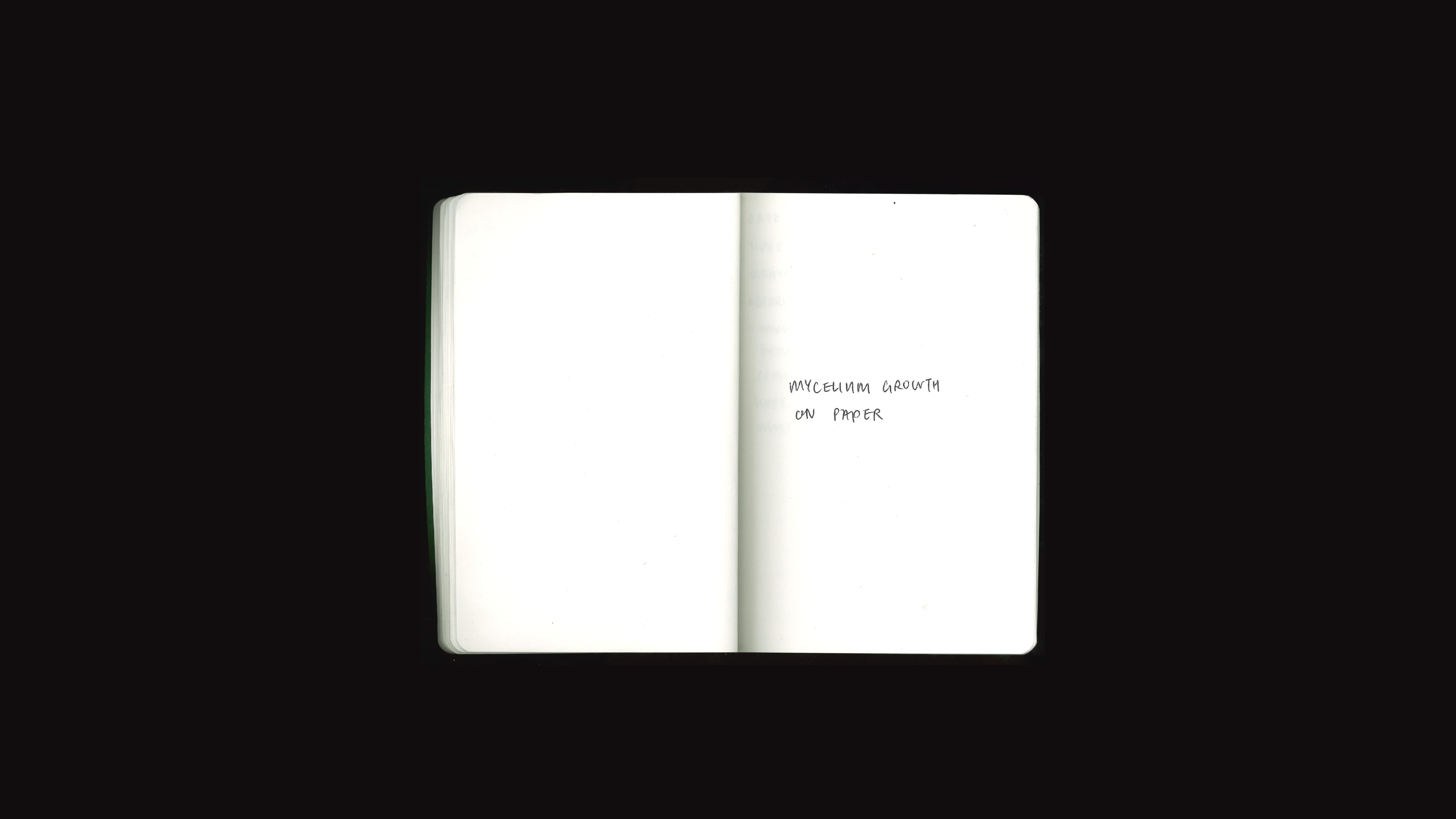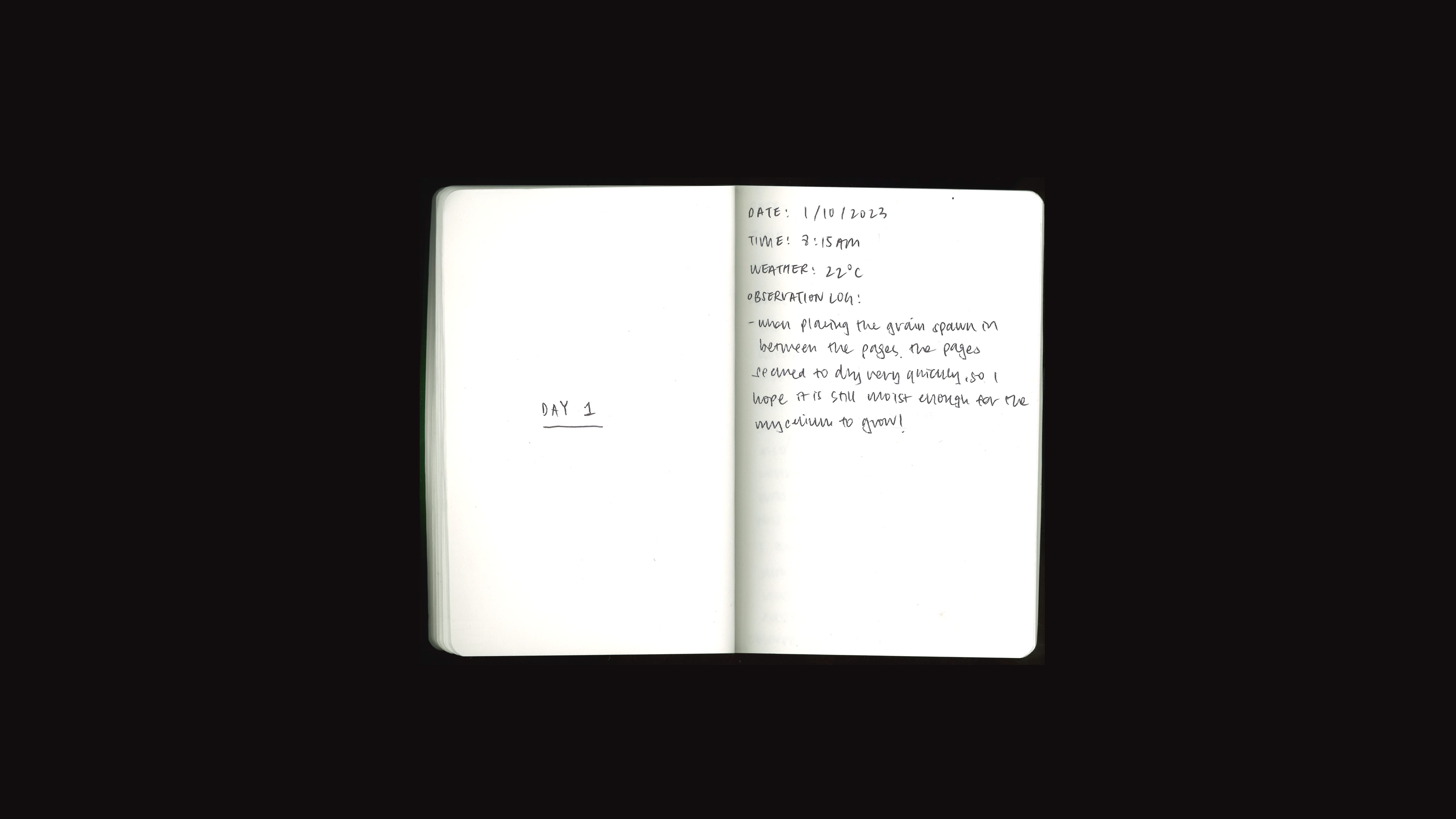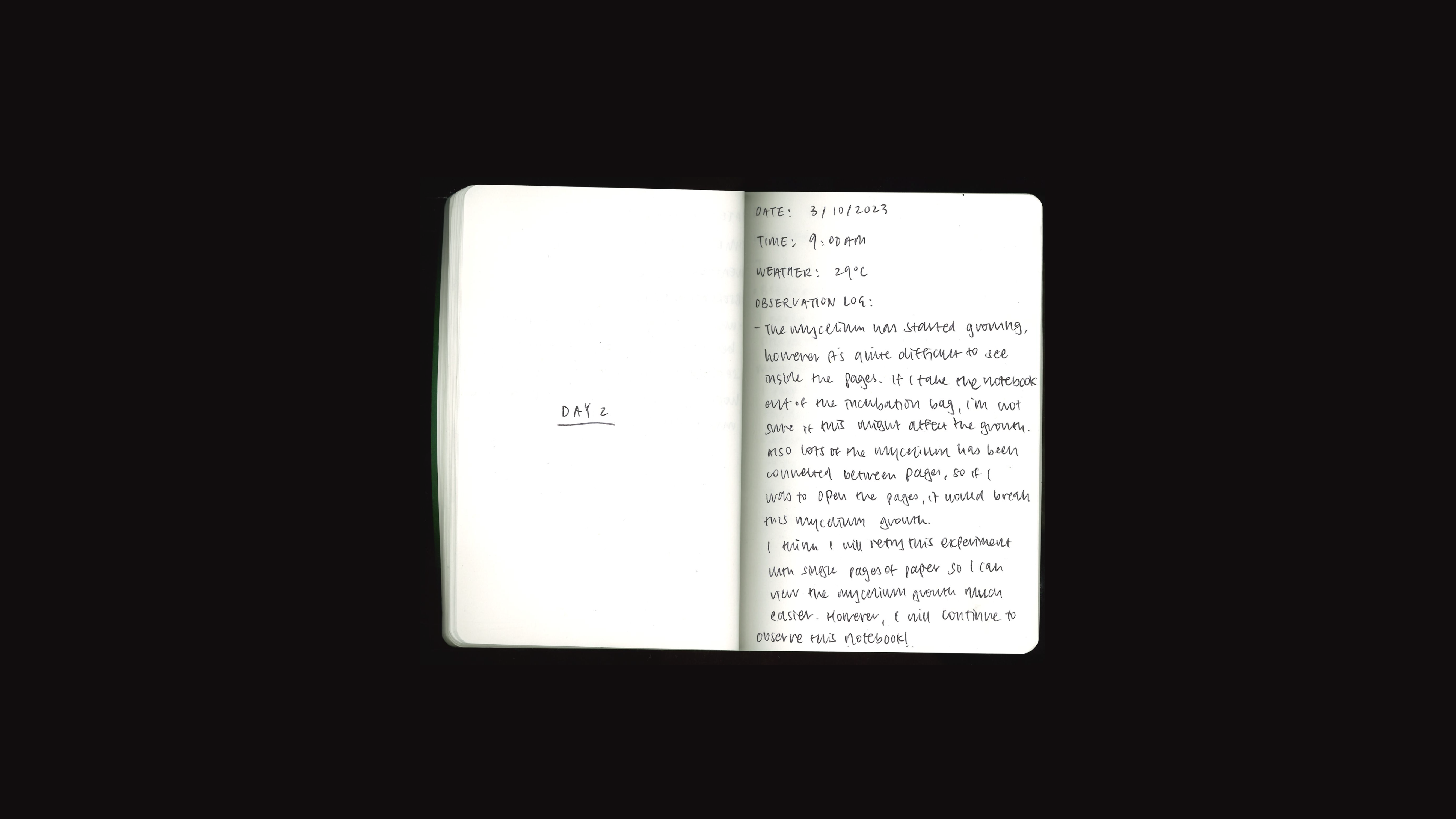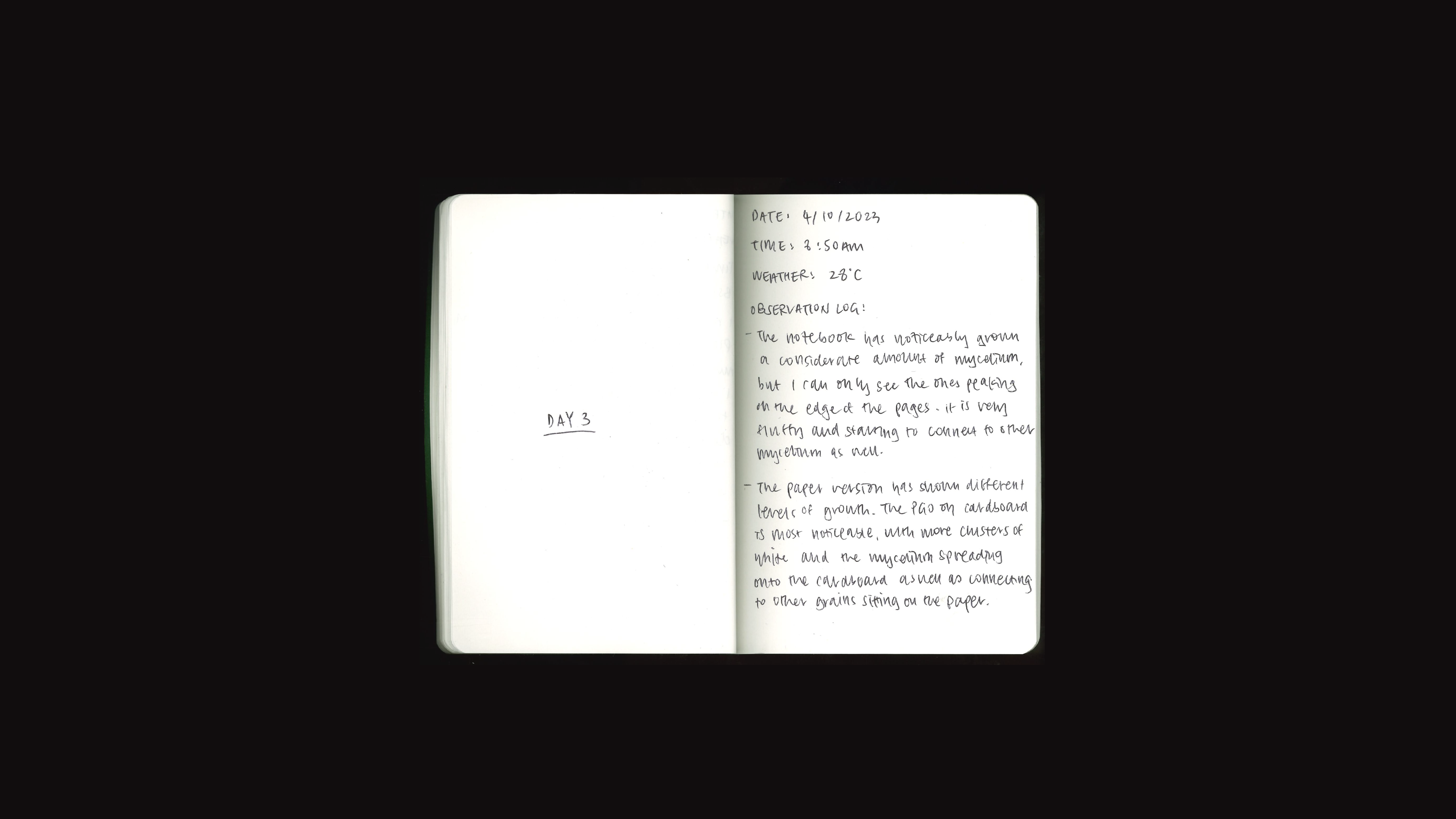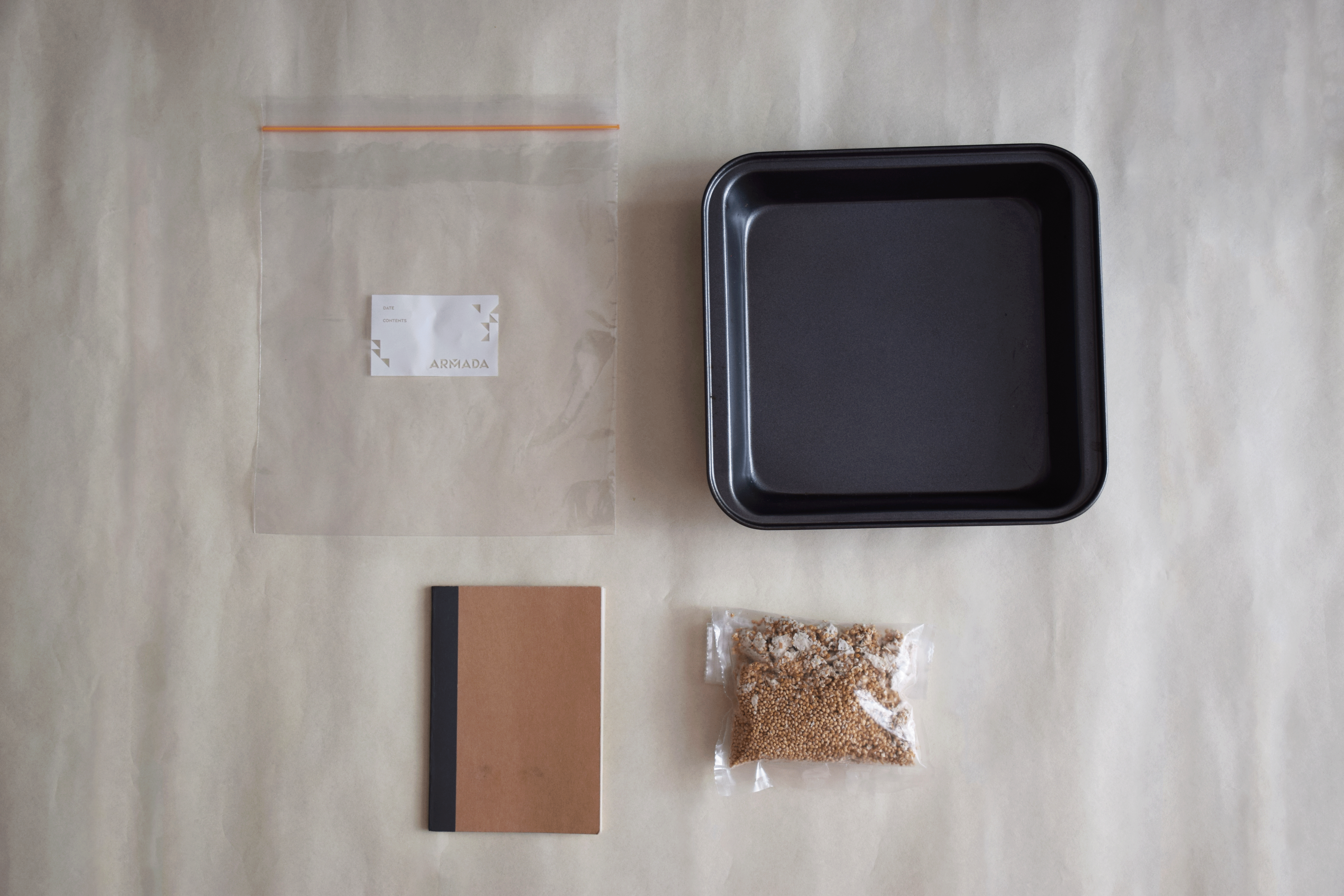Mycelium Formation Radial Layout
3. Extended Methodology
An extended methodology presenting the photographic documentation, detailed processes, and an Observation Log recording the observations and reflections for experiments 3A and 3B.
NOTEBOOK
Mycelium Growth from DAY 1 - DAY 30


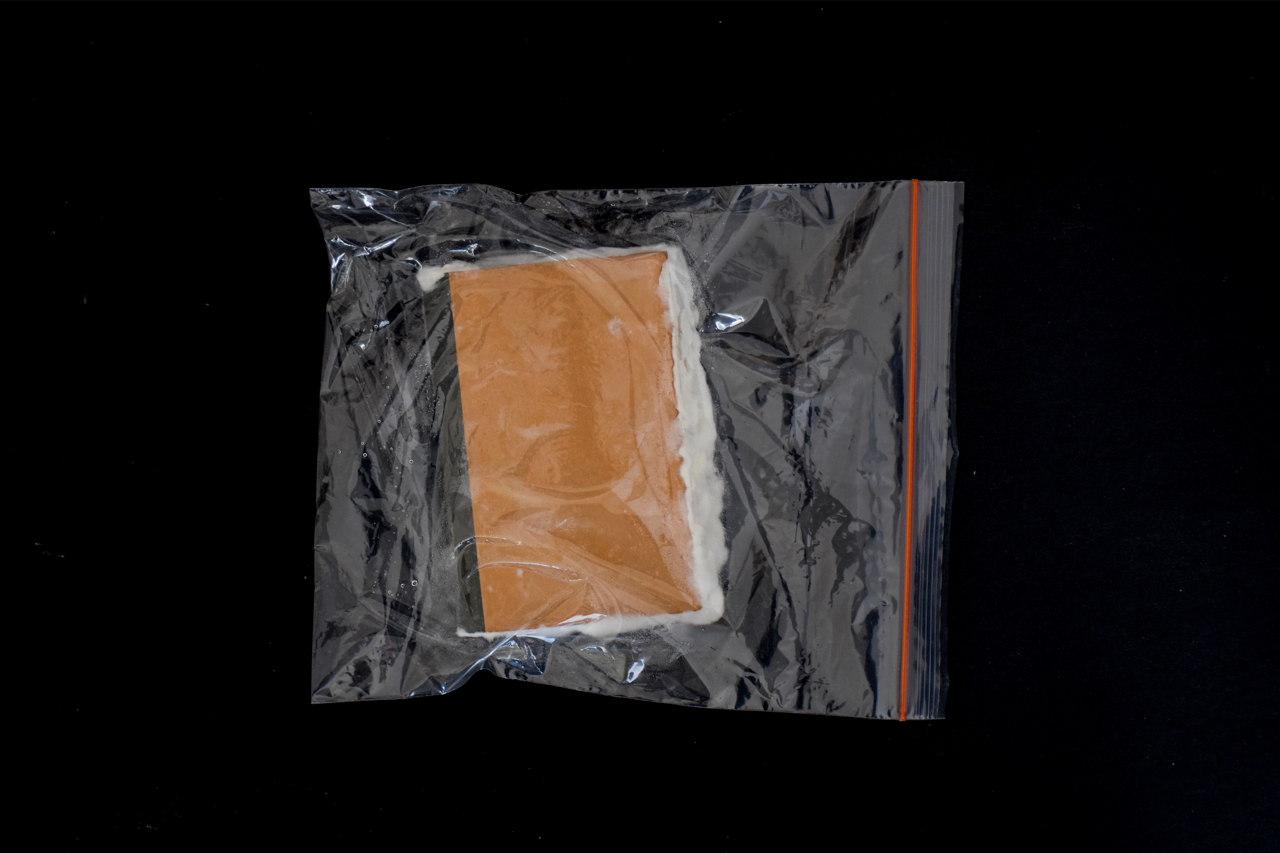
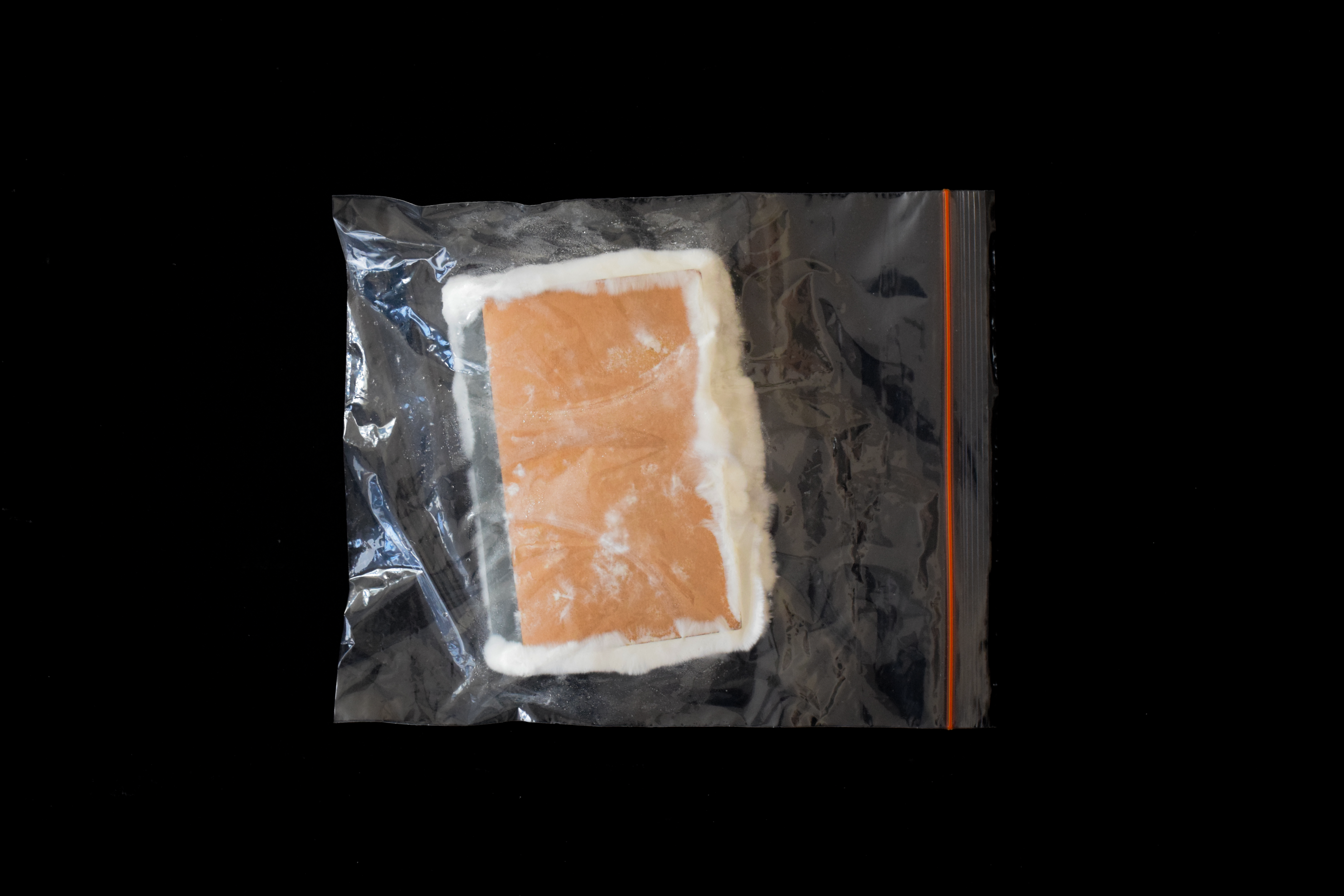
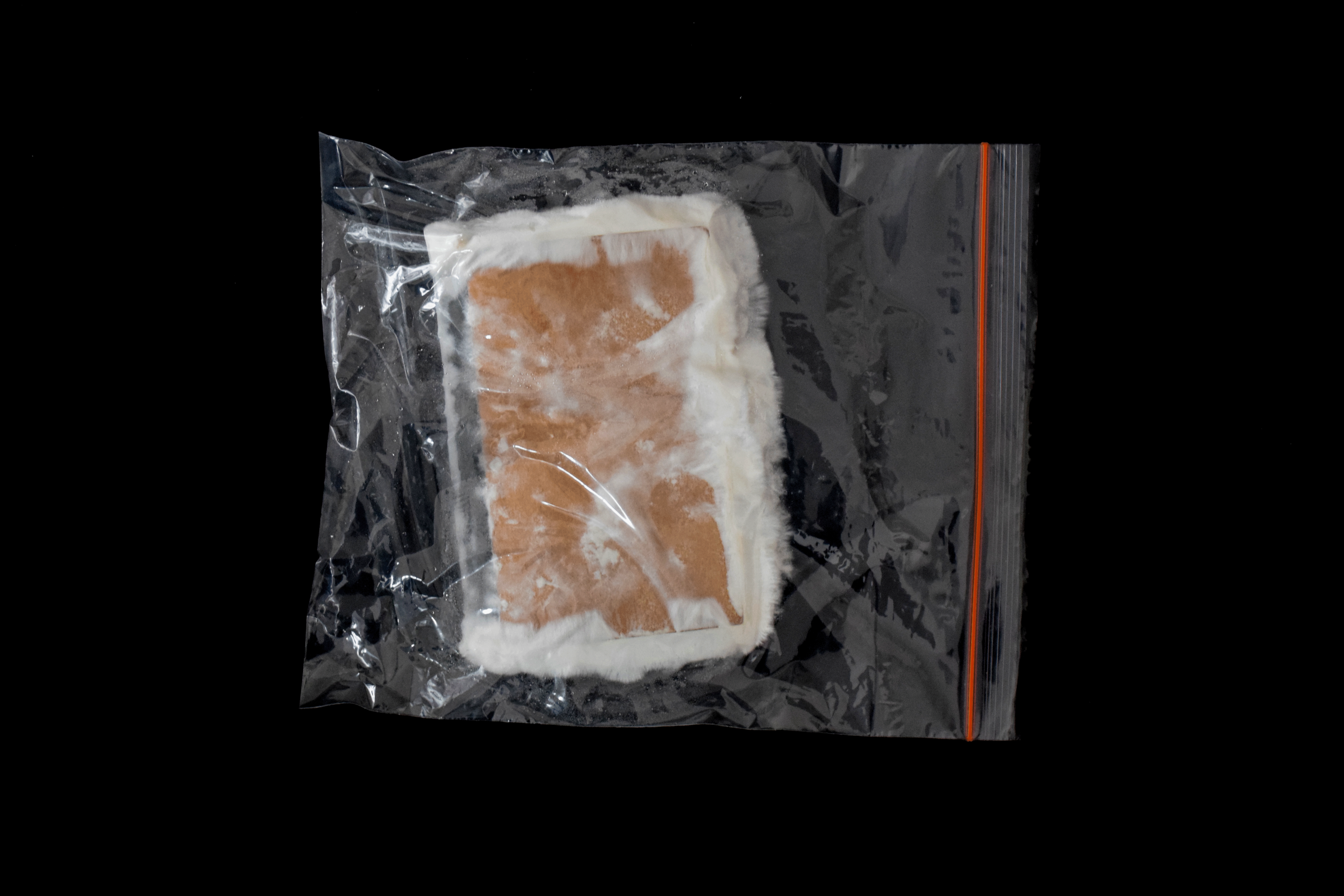
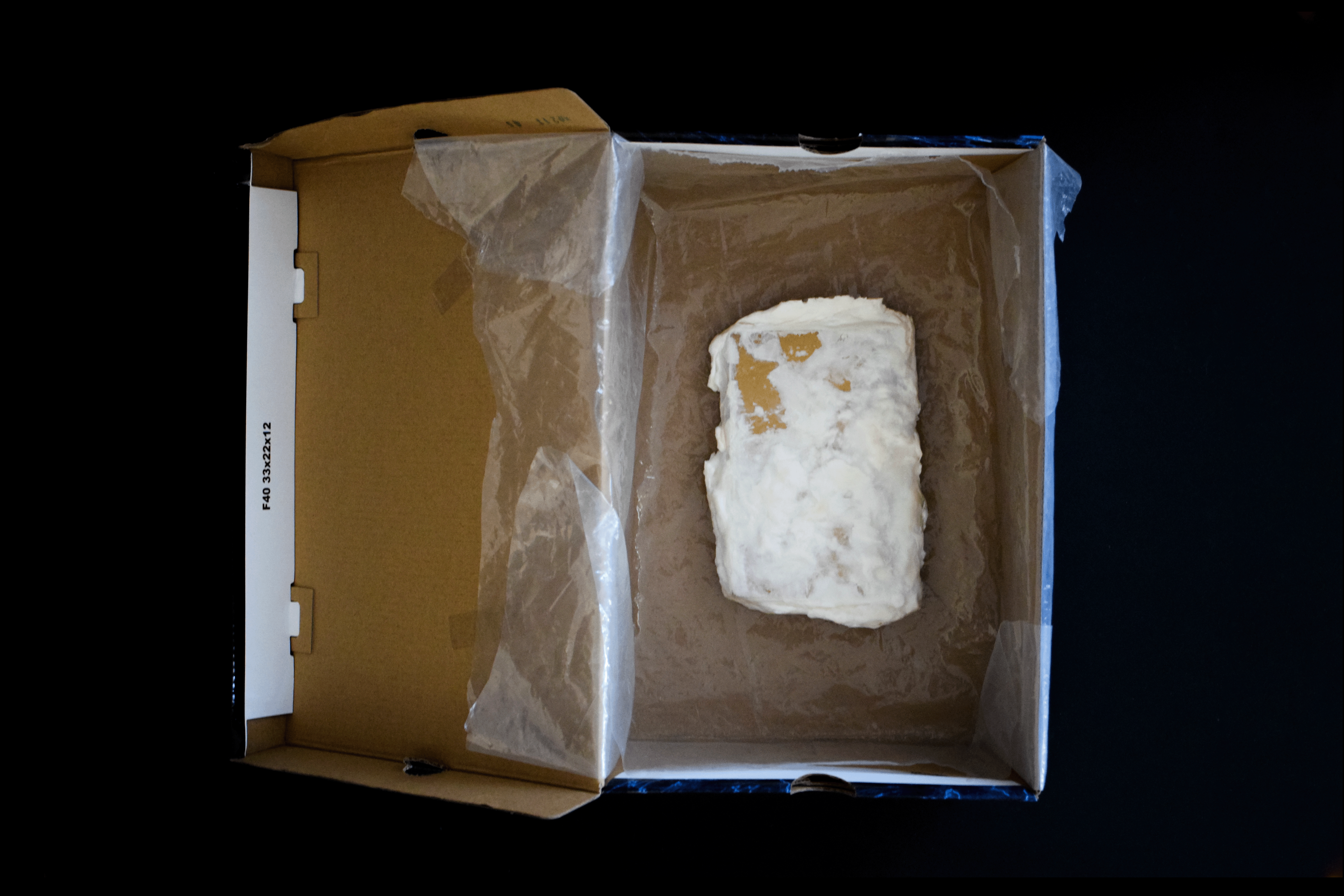
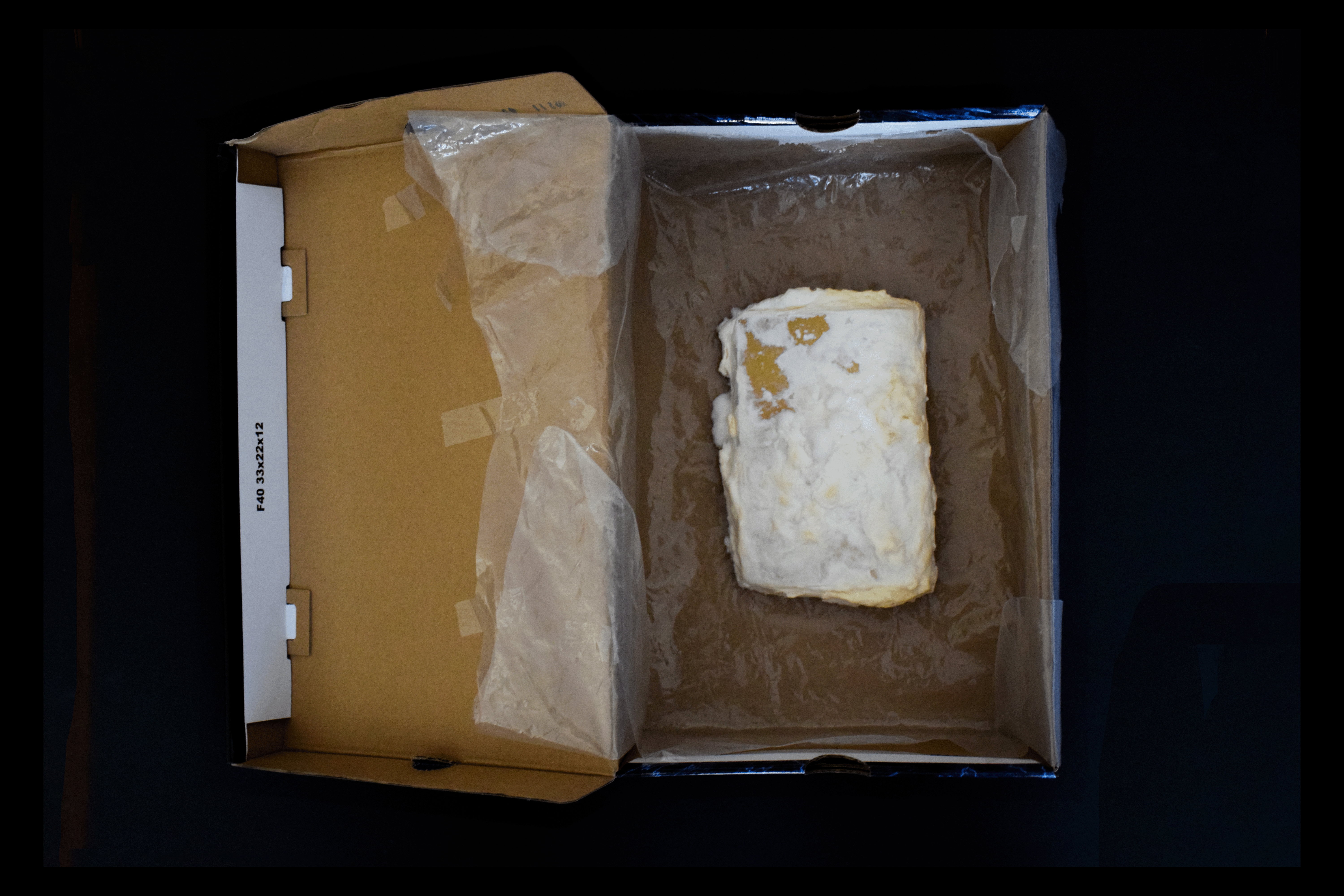


PAPER STOCKS
Mycelium Growth from DAY 1 - DAY 13
Pearl Giant Oyster on Cardboard
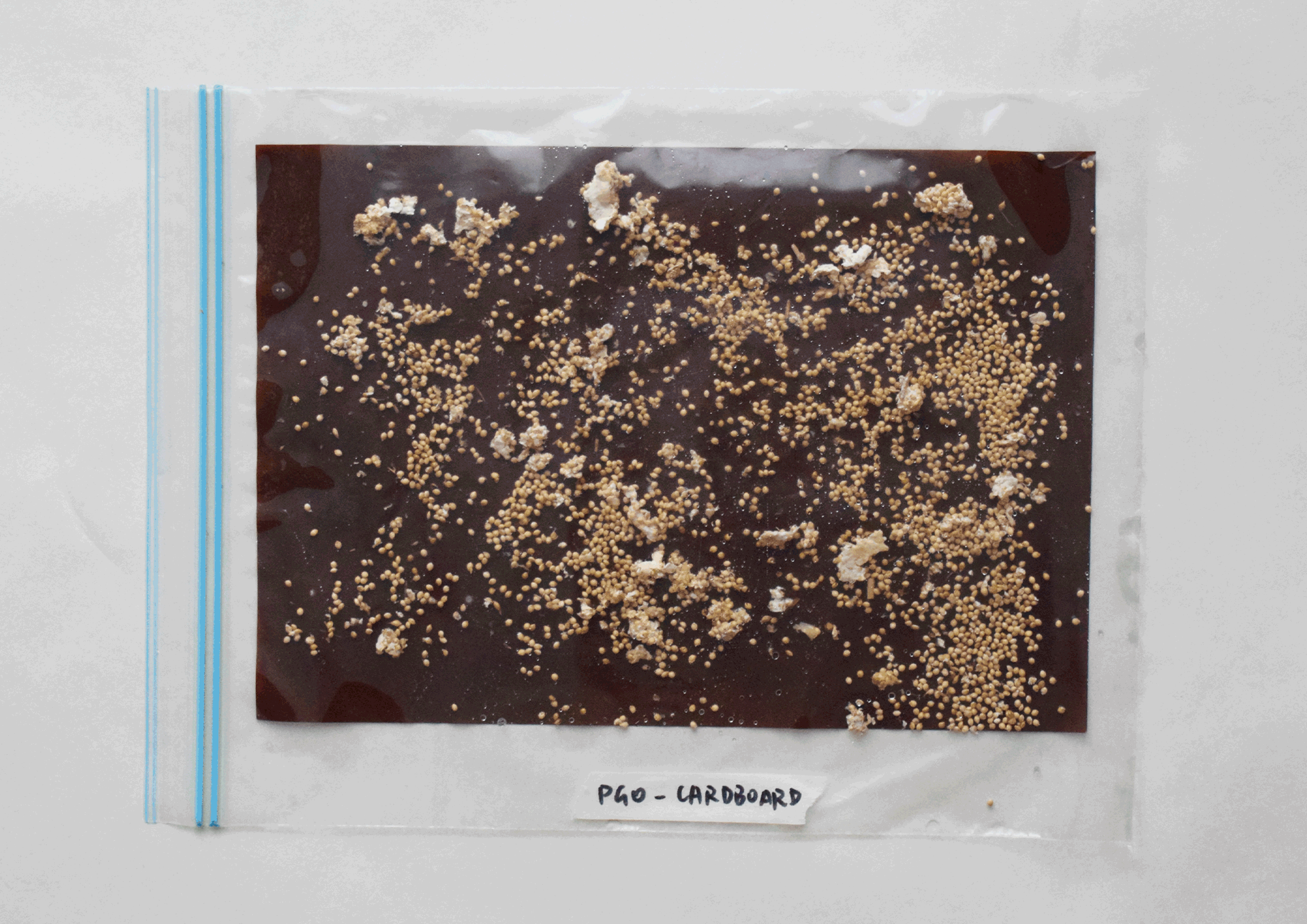
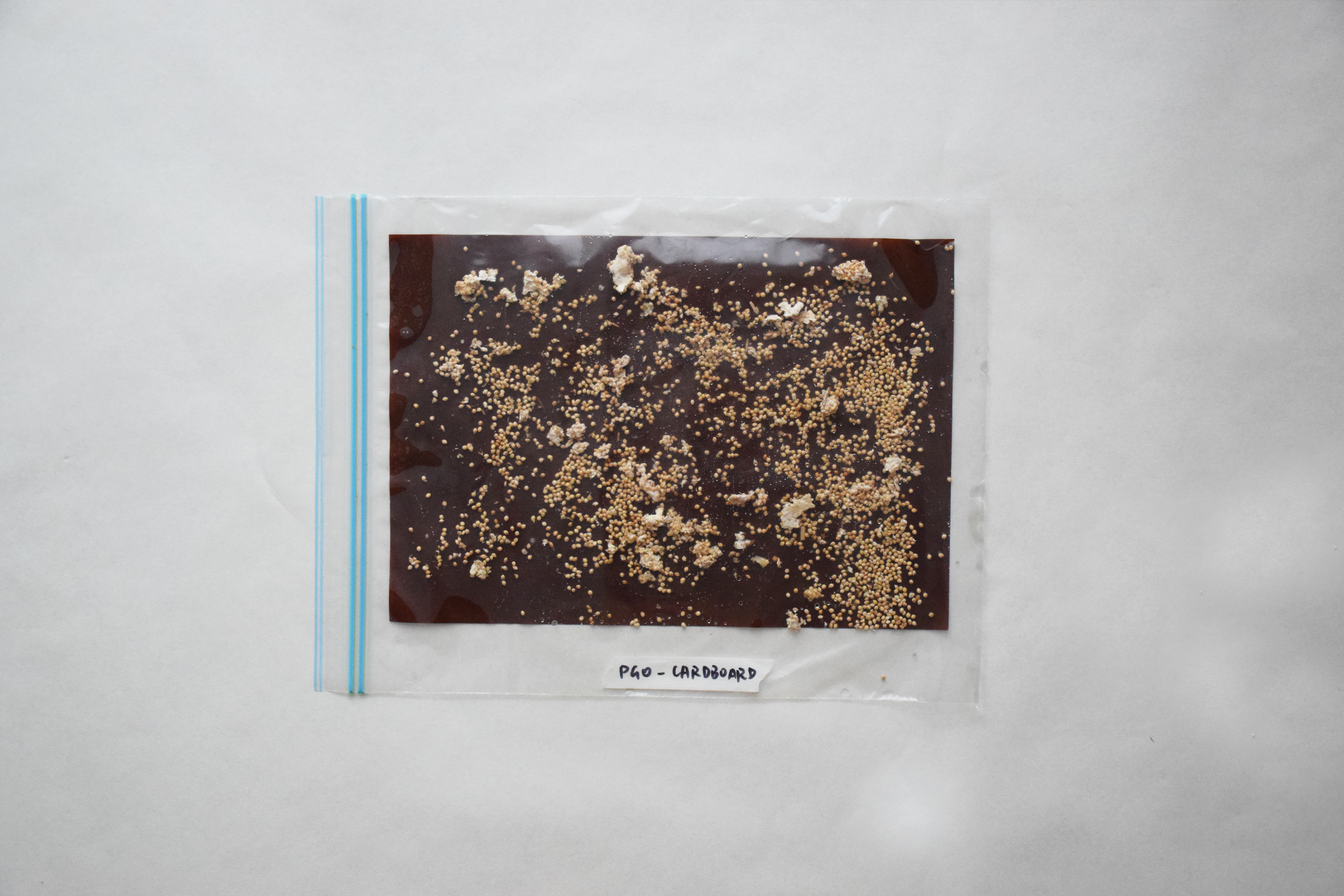

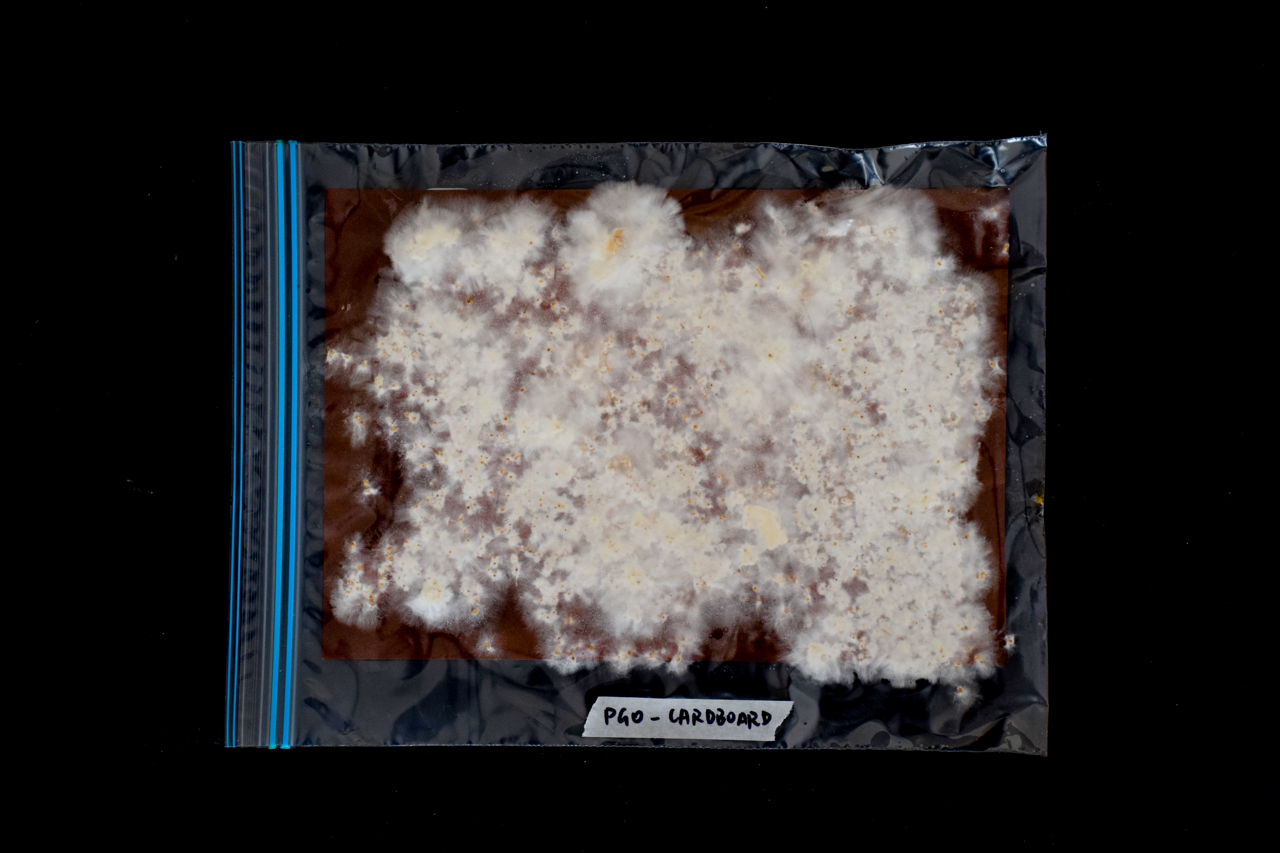

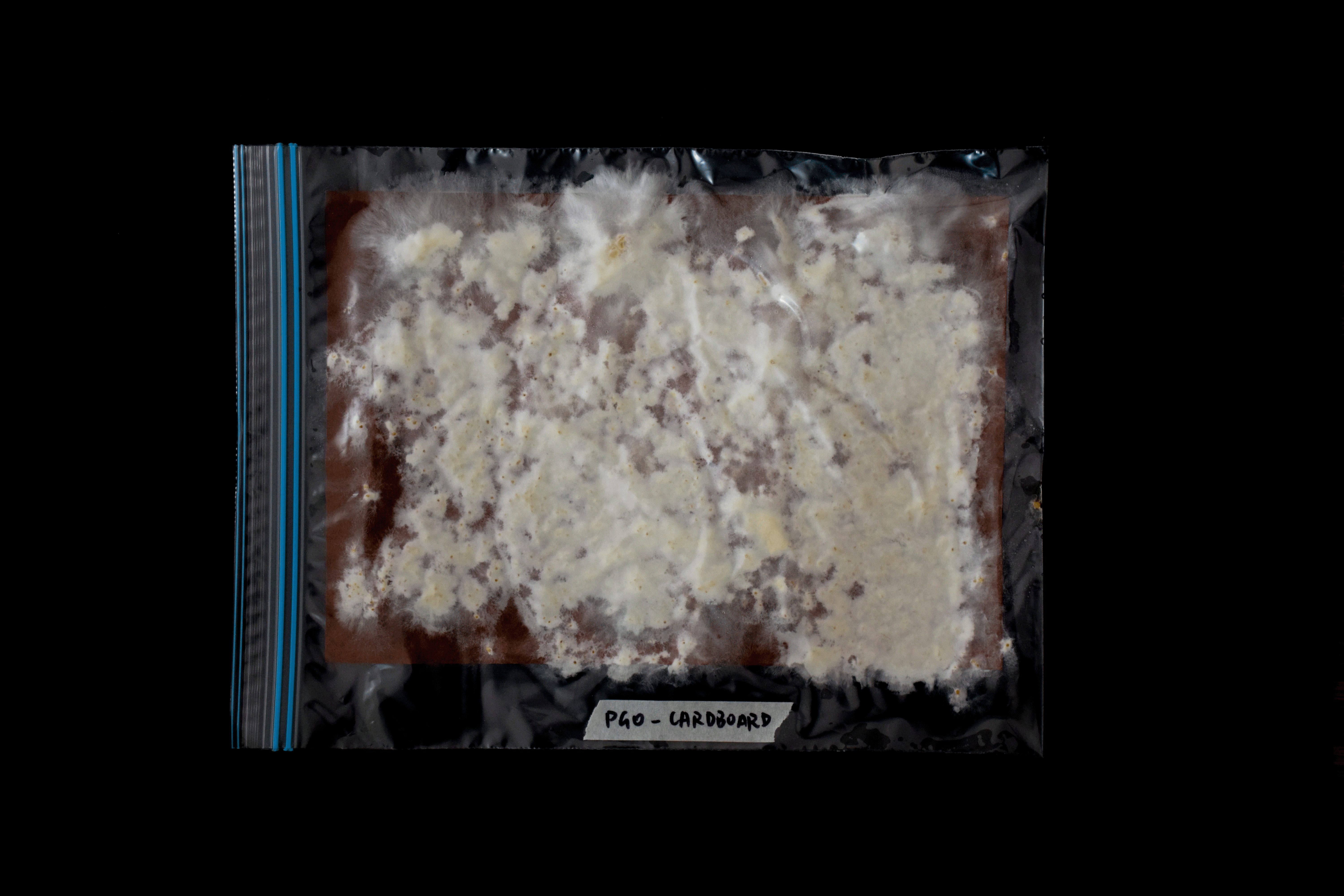
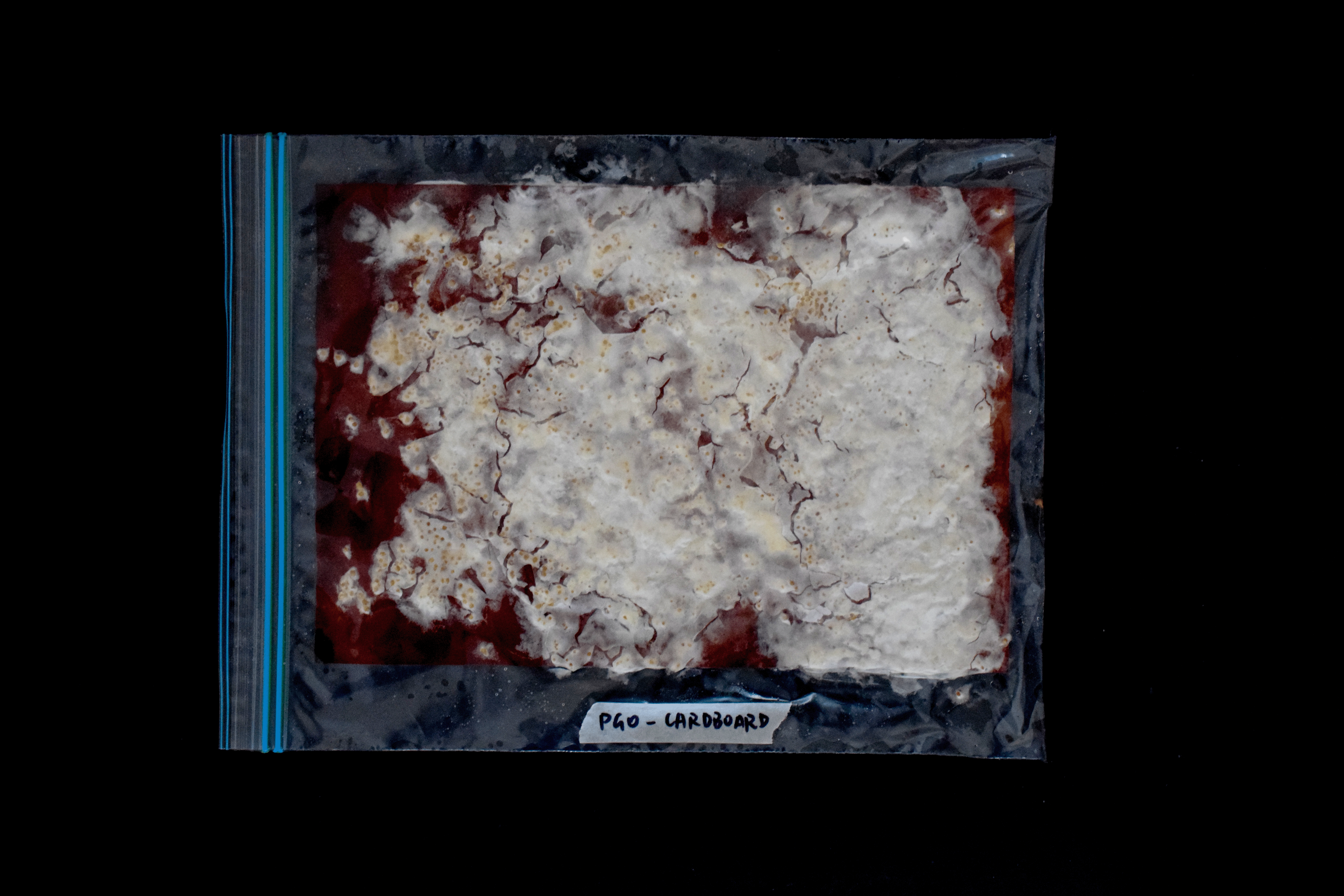
Pearl Giant Oyster on Watercolour Paper
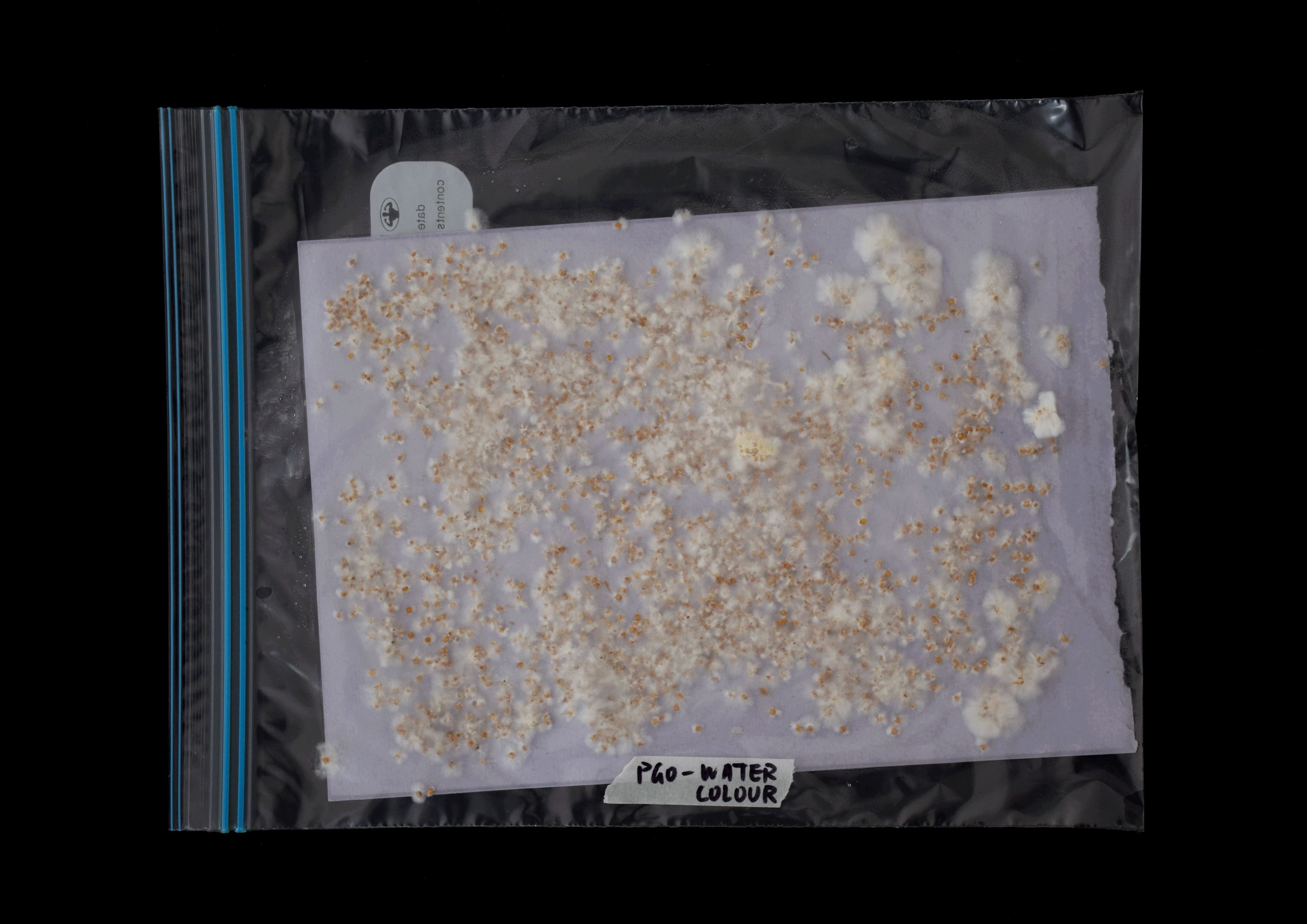




Reishi on Watercolour Paper
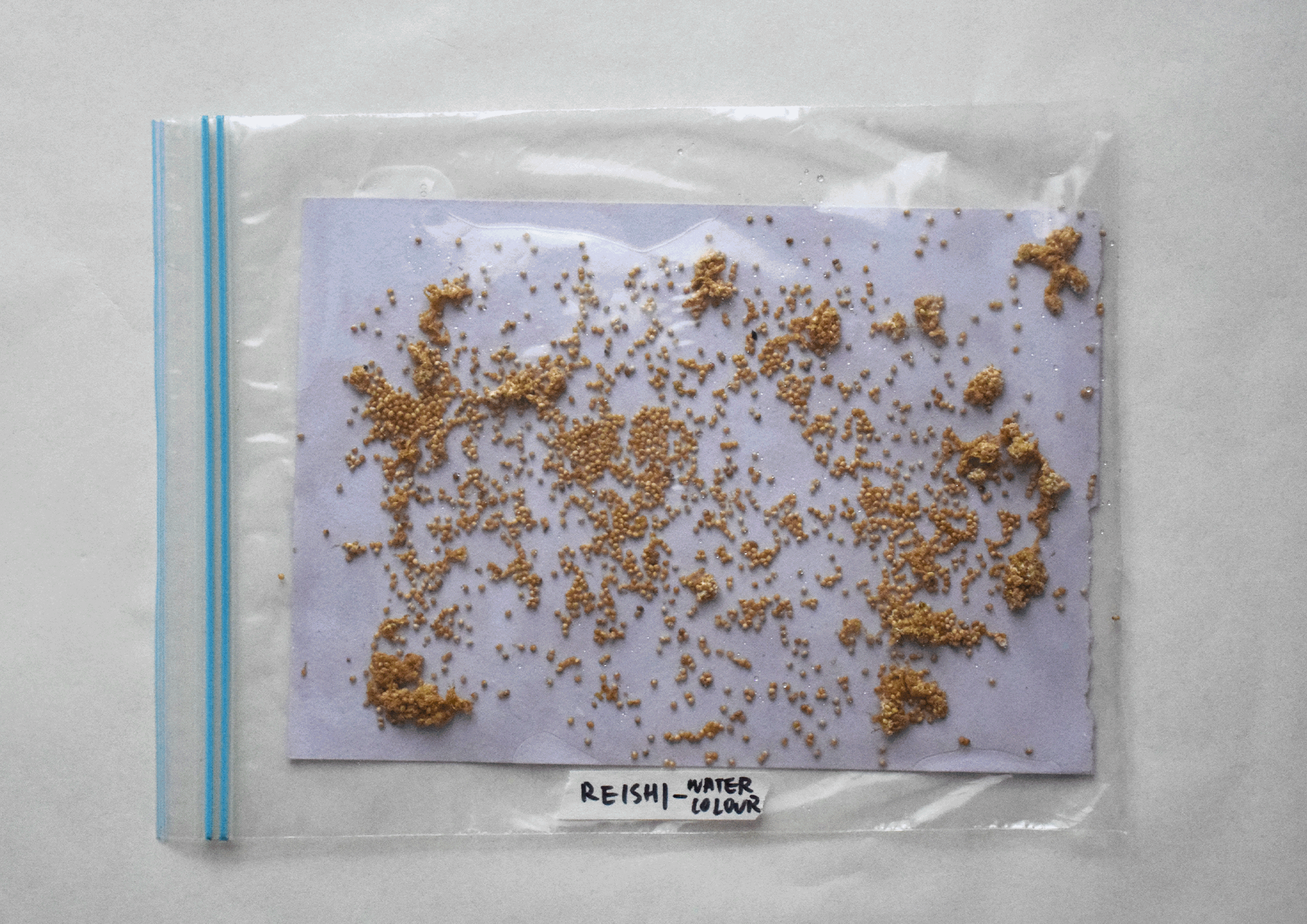



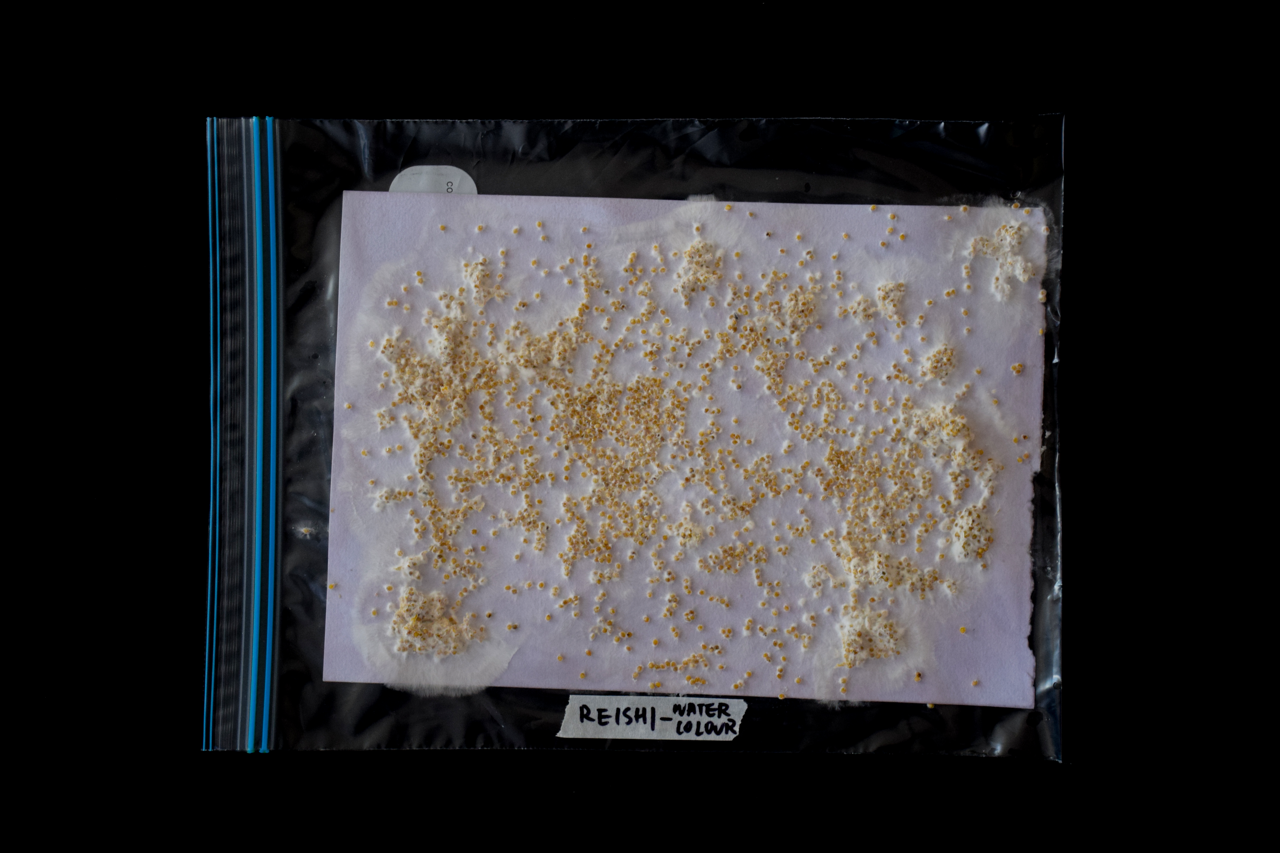


Reishi on Copy Paper
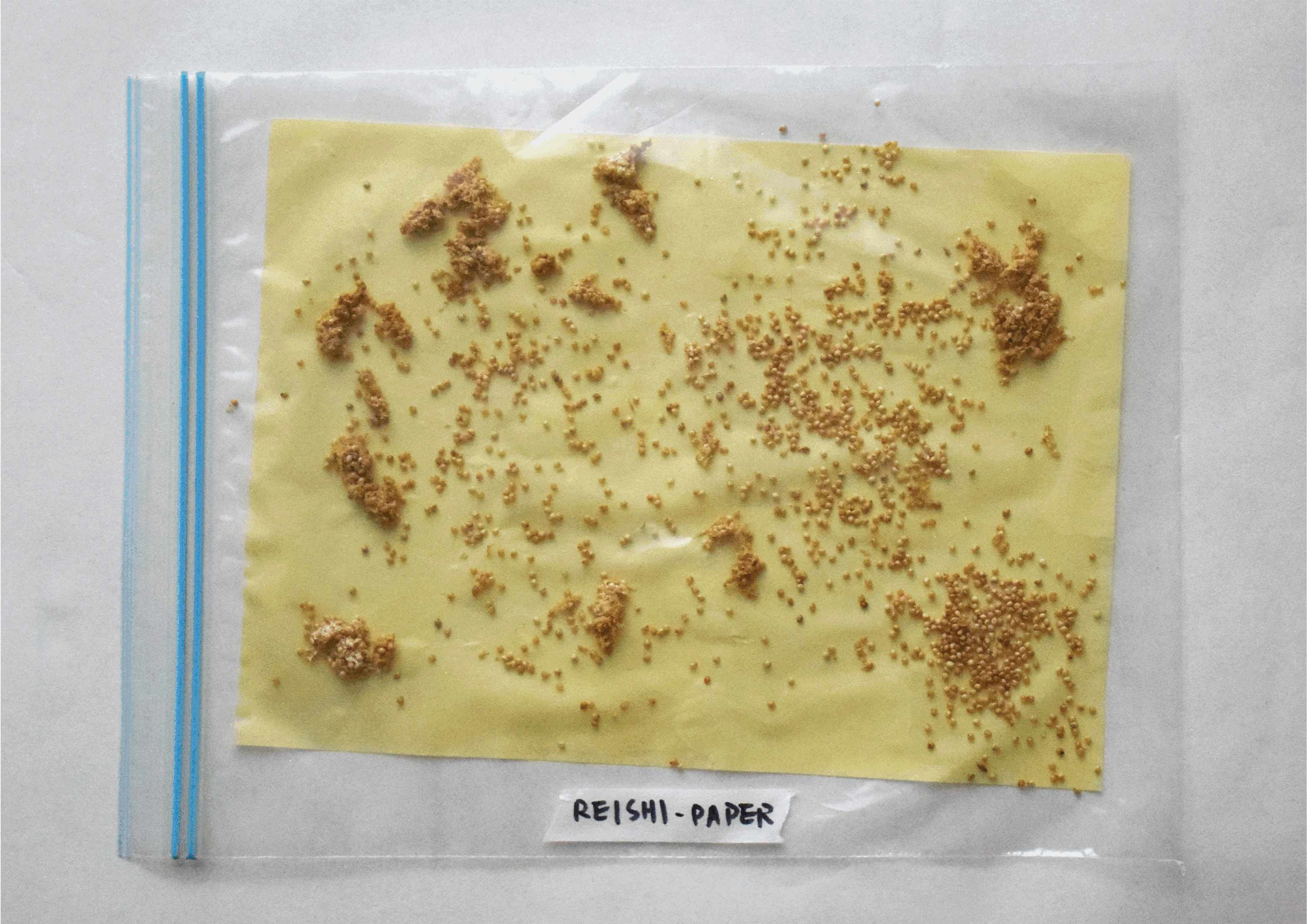

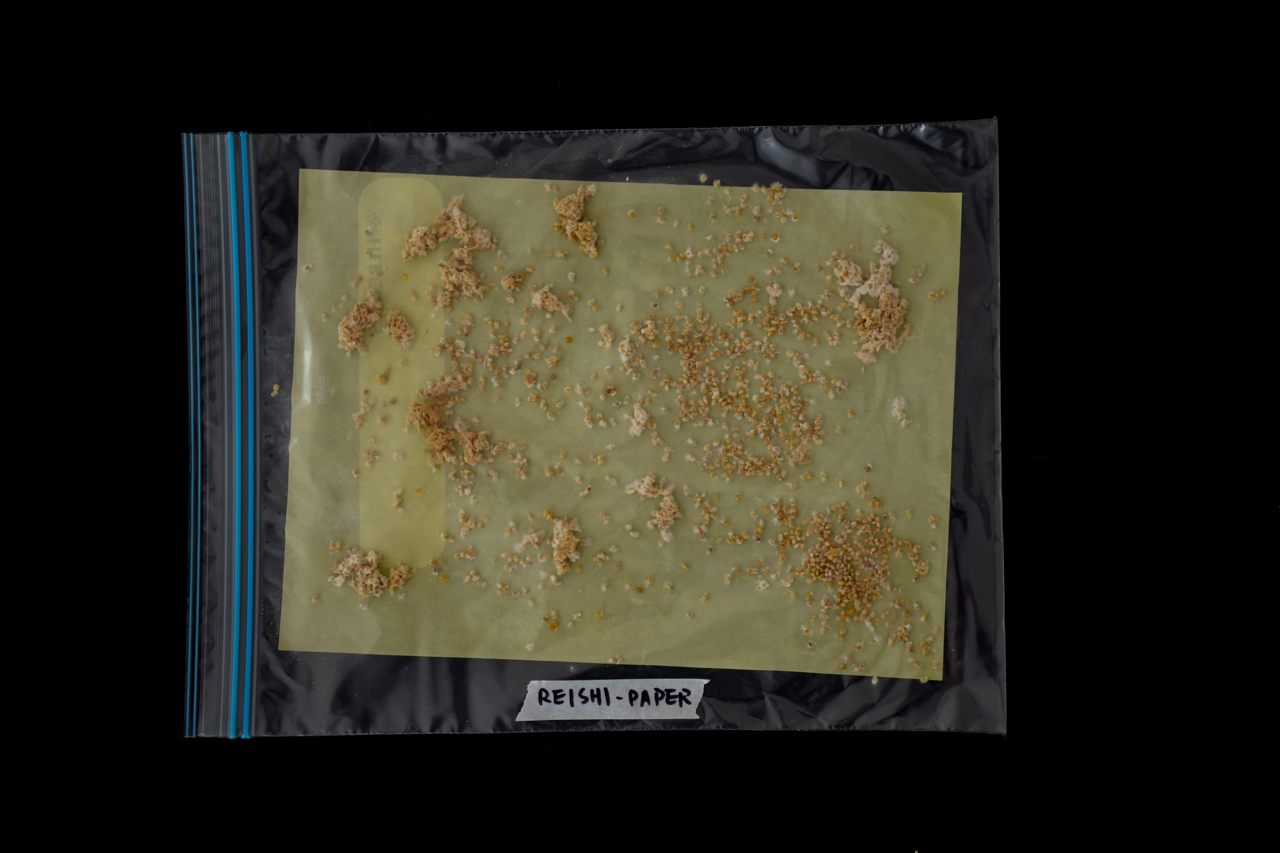
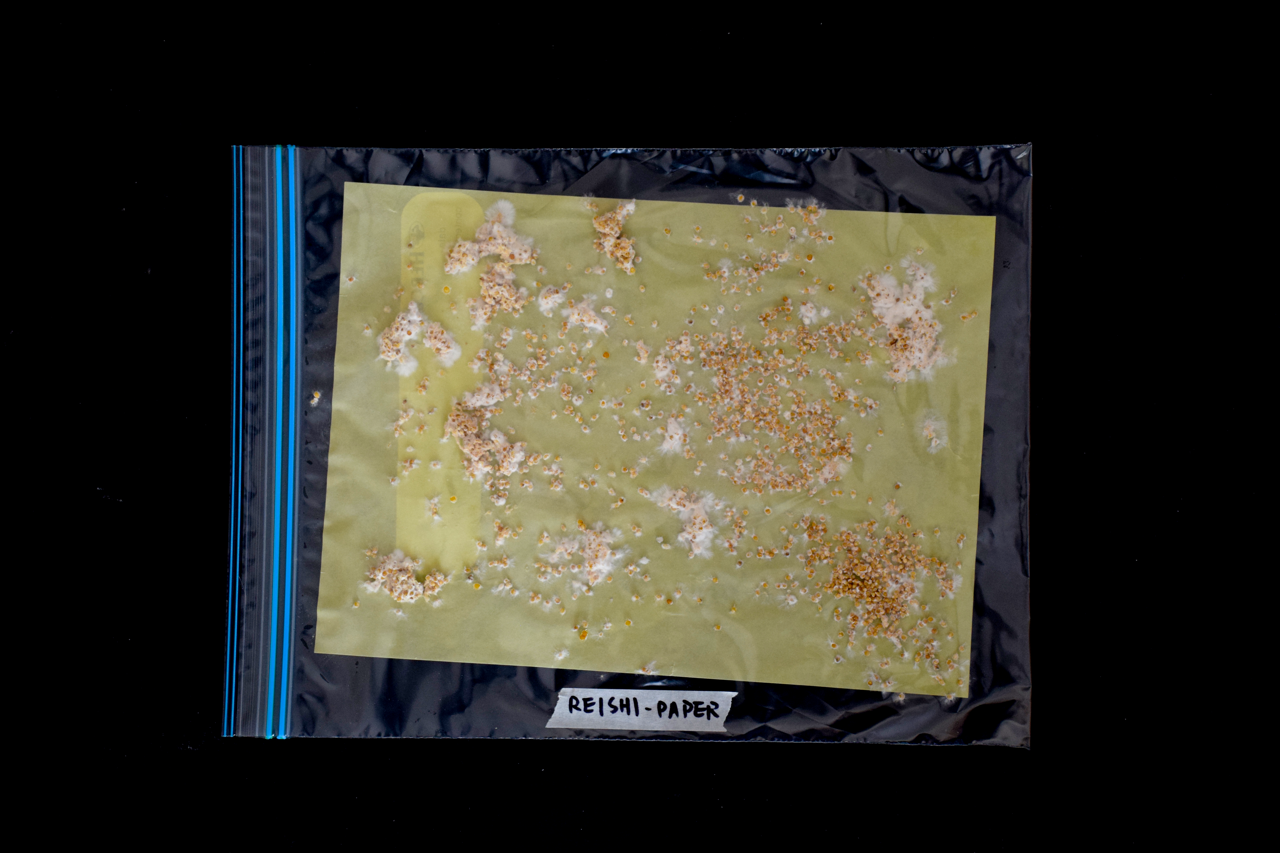
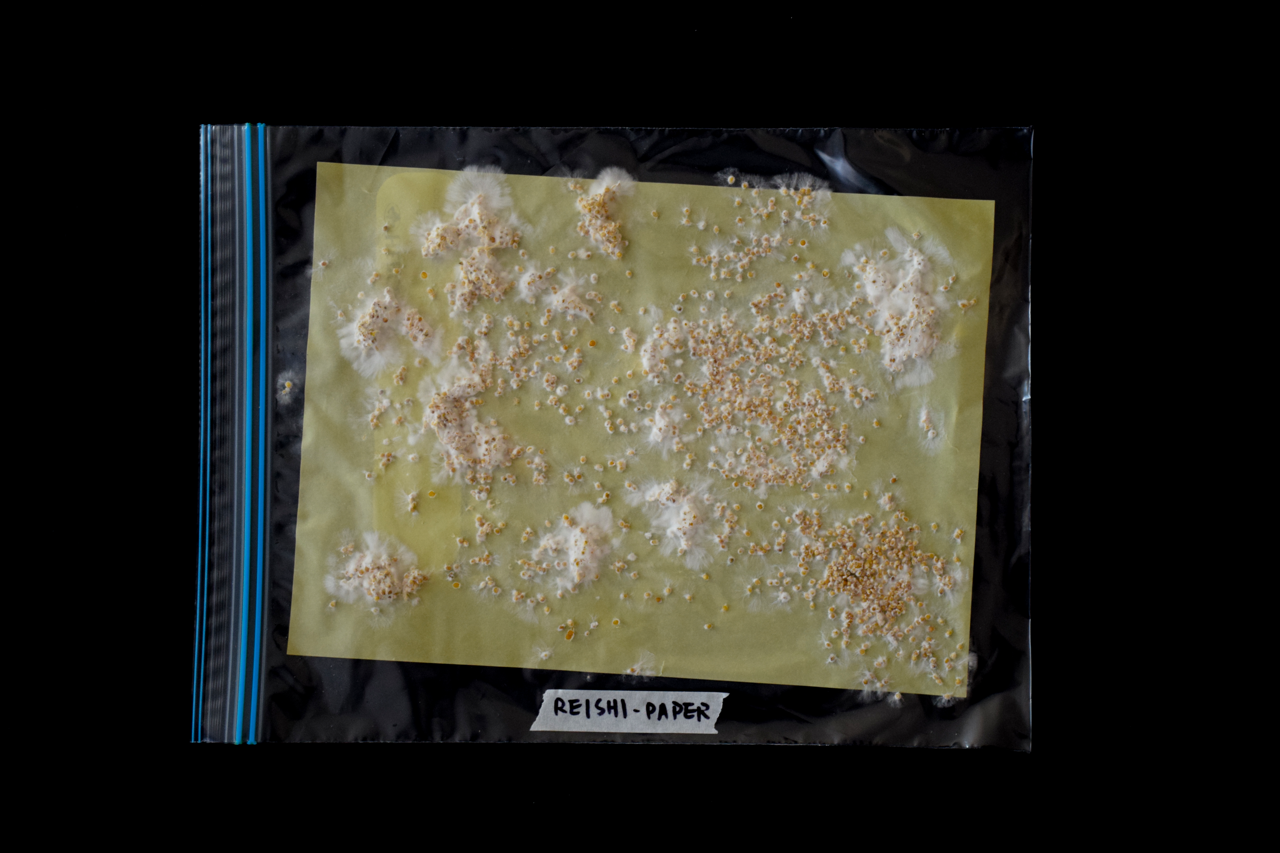


Materials:
- Mushroom grain spawn
︎︎︎ Pearl Giant Oyster
︎︎︎ Reishi - Book of your chosen size
- Cup
- Boiling Water
- Baking tray large enough to submerge book and paper
- Large Ziplock bags
- Coloured A4 Paper in 3 different paper stocks
︎︎︎Cardboard
︎︎︎Watercolour artist paper
︎︎︎Copy paper
![Materials and equipment for Experiment 1A.]()

Process:
On Notebook
- Boil 500ml of water
- Place the book in the watertight container. Once the water has been boiled, instantly pour the water in the container until the book is fully submerged.
- Use a heavy cup or weight to continuously submerge the book underwater.
- Wait until the water has cooled to room temperature. If you try adding your mushroom spawn too soon, the heat could damage and kill it. So you need to allow it to cool down to room temperature first.
- Break up the mushroom spawn into small pieces and place as much mushroom spawn as possible between the pages.
- Depending on the size and thickness of the book, add spawn layers to every page or every 20 pages.
- Be sure to compress the book slightly between each layer.
- This will make sure the spawn has good contact with the pages. It’ll help ensure the mycelium will be able to feed on nutrients in the pages.
- Once you've filled the book with mushroom spawn, place the book into the ziplock bag.
- Seal off the bag and leave in a dark, humid area. In this experiment, the bags have been placed into a closed shoebox next to a large sunny window. Leave the bag to incubate and grow mycelium.
- Repeat steps 1- 4, however replace the book with the sheets of paper.
- Place each sheet of paper into a ziplock bag each.
- Break up the mushroom spawn into small pieces and place as much mushroom spawn as possible on each sheet of paper lying flat down.
- Make sure to segregate the spawn well all over each page.
- Label each ziplock with the mushroom spawn species and paper stock used. Make sure this label does not cover the paper. Writing the label on a piece of masking tape allows it to be removable and easily adjusted.
- Seal off the bag and leave in a dark, humid area. In this experiment, the bags have been placed into a closed shoebox next to a large sunny window. Leave the bag to incubate and grow mycelium.
Observation Log 3A + 3B
